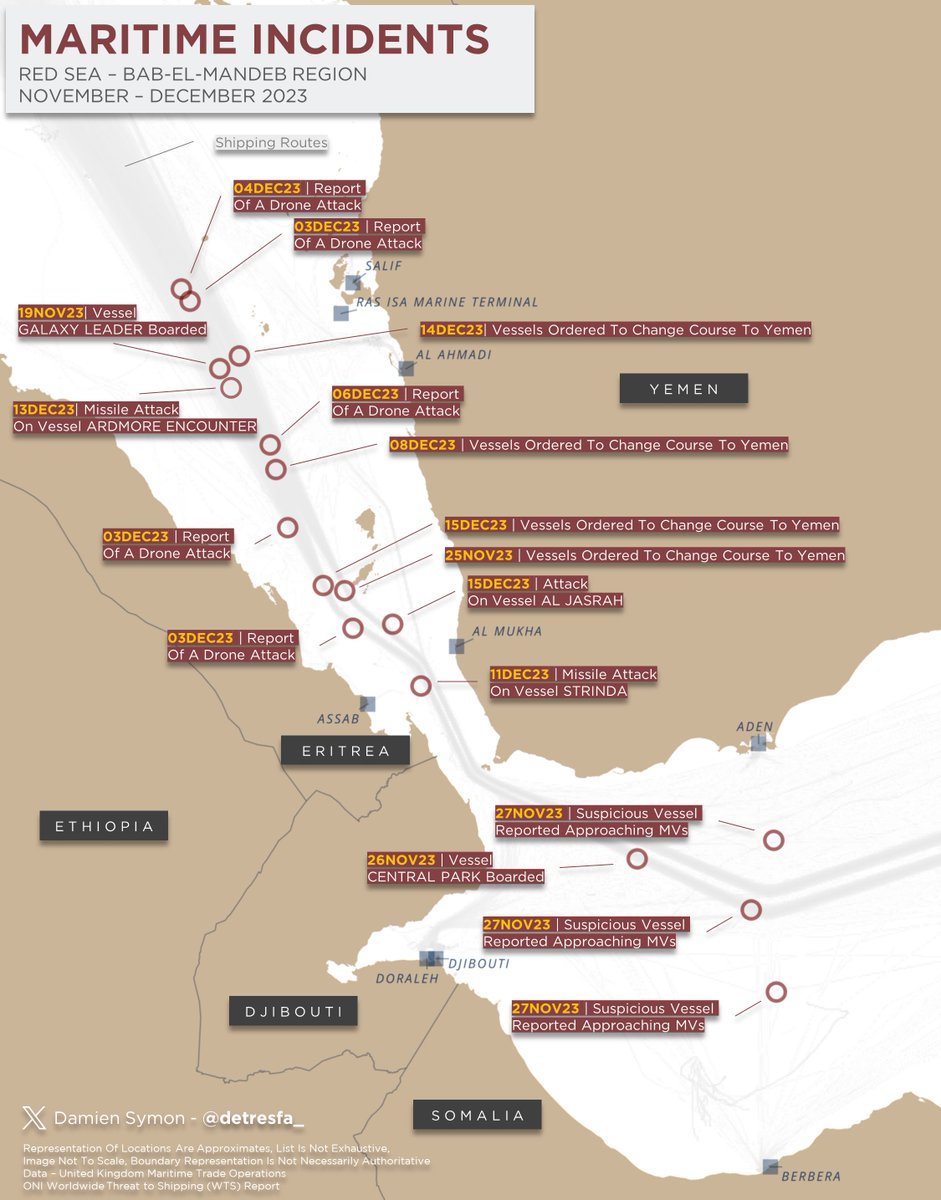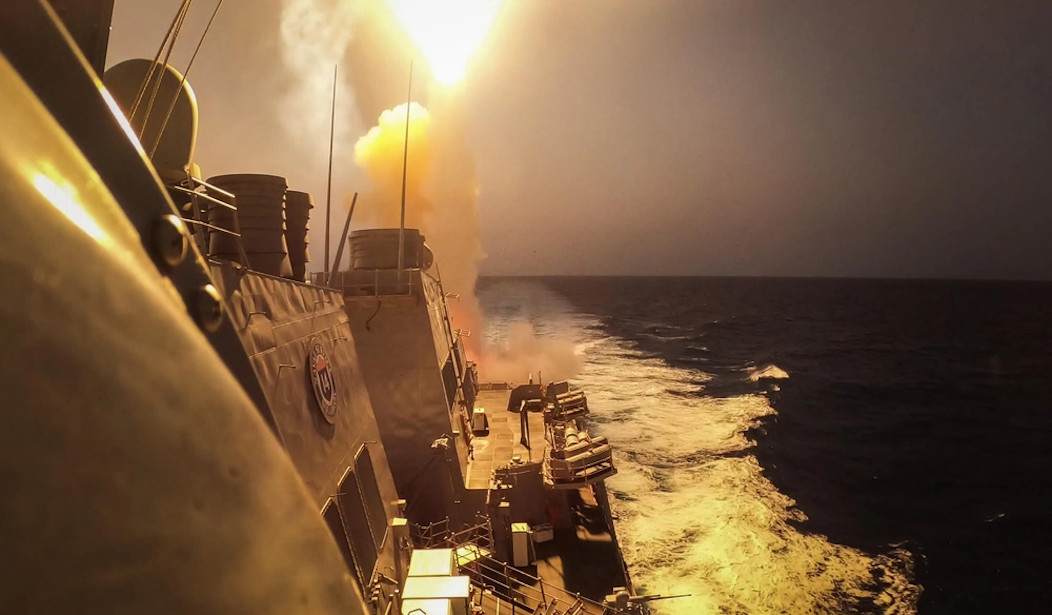Secretary of Defense Lloyd Austin is expected to announce the formation of an international naval coalition as early as Monday to guarantee the safety of commercial shipping in the Red Sea, in general, and the Bab al-Maneb maritime chokepoint in particular. Iranian proxy Houthis have attacked at least ten commercial vessels in Yemen since the Israel-Hamas War erupted on October 7. Two of those ships that have been seized are held by pirates affiliated with the Houthi.

About 10 percent of the world's sea traffic goes through the Red Sea. Rerouting ships around the Cape of Good Hope lengthens the trip by about twelve days, adding considerable cost to freight and disrupting supply chains. The frequency of the attacks has led two of the world's largest shipping companies, Maersk and Hapag-Lloyd, to order their ships to avoid the Red Sea until further notice; see Major Shipping Lines Avoid Red Sea; Is It Just the Houthis or Should We Be Looking Deeper?.
The new coalition, to be called Operation Prosperity Guardian (is it too much to ask that we begin calling military operations things that don't suck?), will involve ships of several nations. The concept of the operation is not yet known, but it is expected to combine the protection of individual ships with convoys. In fact, very little is known about the operation (number of ships, which countries, when it starts, its Mission) other than its name.
Shipping companies are taking it seriously. Automatic Identification System beacons are showing that Maersk and Hapag-Lloyd ships are forming up for a convoy.
Ships from @Maersk @cmacgm @MSCCargo @HapagLloydAG are heaving to in the #RedSea waiting for the @USNavy and others to initiate Operation #ProsperityGuardian. pic.twitter.com/sWqyHKv5xR
— Sal Mercogliano (WGOW Shipping) 🚢⚓🐪🚒🏴☠️ (@mercoglianos) December 17, 2023
So far, allied navies have a mixed bag regarding their record of protecting shipping. Most attention seems to be focused on self-defense or intercepting drones and missiles en route to Israel, and shipping has been mainly left to fend for itself. US destroyers have been doing the heavy lifting; the USS Carney, for instance, shot down 14 Houthi drones in one engagement on Friday (US Warships Under Fire, Shoot Down 14 Drones Near Yemeni Coast), a French destroyer has shot down two and a Royal Navy destroyer another.
As I wrote in Major Shipping Lines Avoid Red Sea, Is It Just the Houthis, or Should We Be Looking Deeper? we need to look beyond the possibility of the Israel-Hamas War expanding if Israel carries out retaliatory strikes against Yemen. This is an exercise in testing the US and NATO response to a critical maritime route being obstructed and the tactics, techniques, and procedures we will use in keeping the sea lanes open.












Join the conversation as a VIP Member